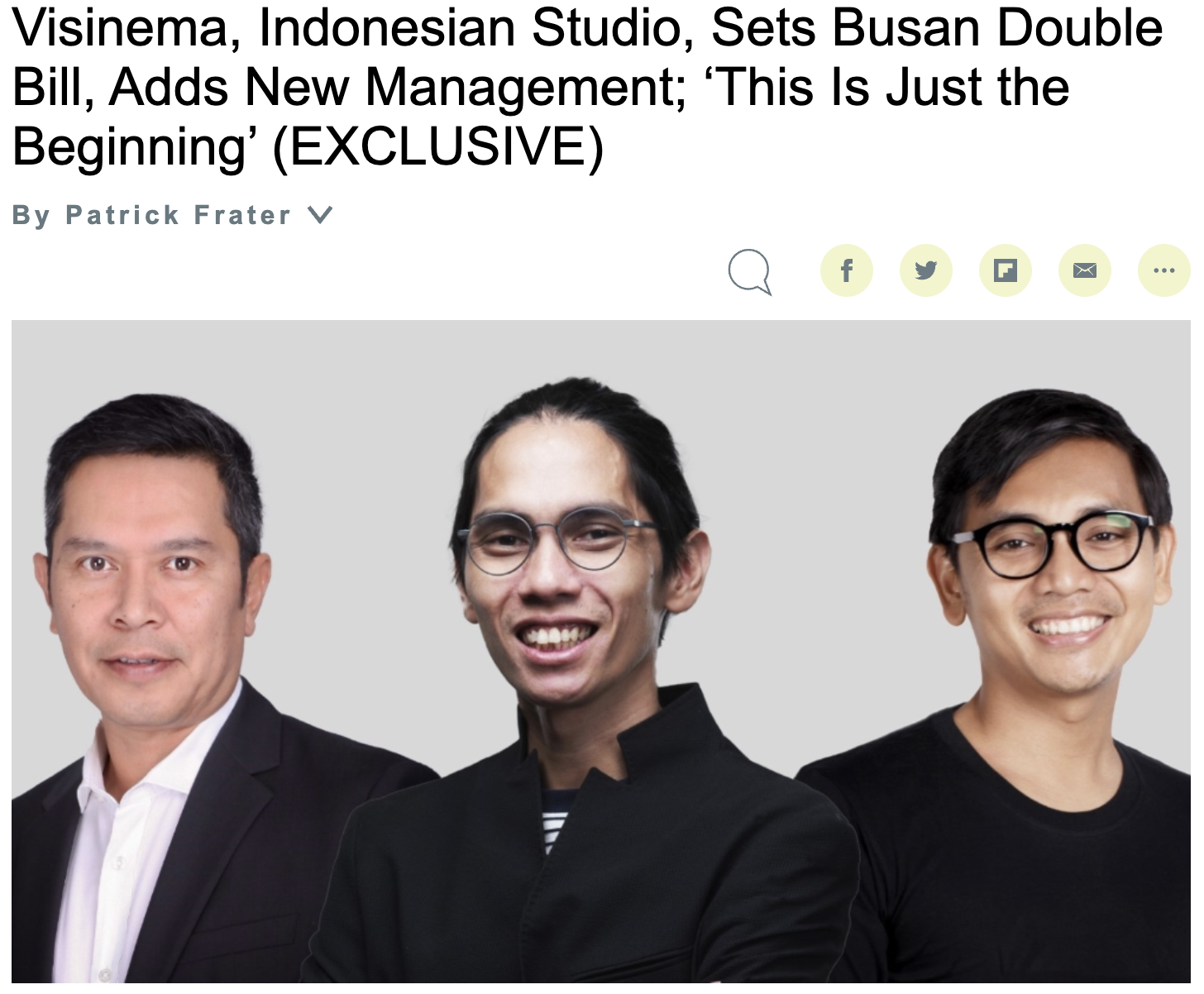If I had to pick one industry...

Thirteen years ago, I met a Korean executive who was investing in cinemas. His name escapes me now, but I will never forget his words.
“In ten years, a Korean film will be at the Oscars. And Korean films will compete with Hollywood.”
I thought to myself, he was hallucinating.
But then, his prophecy came true. In 2020, Parasite won not just one but four oscars. In 2021 Squid Games became the top streaming Netflix series in 80 countries. Welcome to the Golden Age of Korean Cinema, or as fans call it, Hallyu-wood.
I have had the good fortune of playing an active role in the evolution of industries in Indonesia. I led Gopay, which spearheaded the fintech evolution through QR payments. I am a board member of Halodoc, which pioneered telemedicine; Kitabisa, which digitized donations, and eFishery, which digitized fish farms.
A reporter once asked me if I were to pick one industry, which one would have the highest multiplier effect?
I answered, film.
If Indonesian movies have fans worldwide, then our food, fashion, and craft industries will naturally be sought after globally. Indonesian tourism will also get a boost, which perpetuates the cycle. Films also export our culture and values, which will help any soft power diplomacy efforts our nation might want to achieve.
Also, like software, Intellectual Property (IP) can scale infinitely without any physical barriers like manufacturing, shipping, or manual labor. IP, if done well, can stand the test of time. Mickey Mouse and Spiderman have scaled to be a worldwide brand for decades.
Back to the Korean Film industry, not only do we see a global recognition of their films, but the industry’s success has contributed to the broader Korean Wave, or Hallyu, which encompasses various aspects of Korean culture. No doubt, the 8.1 billion-dollar KPop Industry is well known to be integrated into the rise of Korean Films. But did you know? Last year, there was a 59.5% jump in the exports of processed Korean chicken and a 25% jump in export of Korean condiments, such as gochujang. Meanwhile, the number of international tourists visiting South Korea increased from 6.8 million in 2000 to 17.5 million in 2019.

So, how did Korea manage to pull off this feat? What can we learn from their history?
Evolution, not Revolution
Korean films have transcended borders, shattered language barriers, and captured hearts worldwide with their intricate storytelling, unique cinematography, and exceptional performances,
One might say the Korean film industry is revolutionary, except that word implies a sudden disruptive change. But he story of Korean cinema is a lesson in evolution, not revolution. It resulted from decades of persistence, innovation, and a national commitment to arts and culture.
The Korean government took three pivotal steps to establish the foundation. First, they established the Korean Academy of Film Arts in 1984, which became the training ground for renowned directors like Bong Joon-ho. In 1996, Korea’s Constitutional court removed mandatory reviews by the Performance Ethics Committee, resulting in a surge of investments into cinema. In 1998 the government facilitated cultural exchanges with China and Japan. These shifts, in the span of 2 decades, finally opened the floodgates to a new era of Korean cinema.
Nurturing Seed Talent
A key factor in Korean cinema's ascend was the emergence of a new generation of filmmakers in the late 90s and early 2000s. Directors like Park Chan-wook ("Oldboy"), Bong Joon-ho ("Parasite"), and Kim Ki-duk ("3-Iron") were not afraid to break conventions, tackle controversial subjects, and push the boundaries of cinematic language. Their works have received critical acclaim at home and garnered recognition at international film festivals, laying the groundwork for the world to notice Korean cinema.
Last week, we announced that several Indonesian films, including 24 hours with Gaspar from Visinema studios, would be featured in the Busan Film Festival. A great start for Indonesian Film Directors.
Longterm Private Investments (aka. The Role of Chaebols)
In the early 1990s, South Korea's film industry saw the rise of its powerful conglomerates, or 'chaebol', as influential patrons. Notable corporations like Samsung, Daewoo, and Hyundai ventured into the cinematic space, only to step back after the financial upheaval of 1997, locally termed the "IMF Crisis". Yet, the void left by these giants was soon filled. Today, conglomerates like the CJ Group, Orion Group, and Lotte Group, through their respective arms of CJ Entertainment, Showbox, and Lotte Entertainment, have emerged as the defining forces of South Korean cinema.
I try to end my blog posts with a call to action. For this one, my request is targeted towards those who work in brands. We need more business groups and brands to invest and work together with Indonesian films. Consider telling your story not through an advertisement in between a TV-series, but as part of the story itself. Take, for example, how Pintu integrated themselves into the narrative within Stealing Raden Saleh.
For my part, I am officially joining the board of Visinema, which wants to lead the evolution of our film industry.
Let’s do this.






